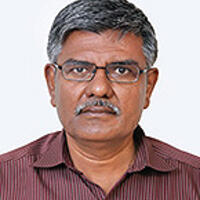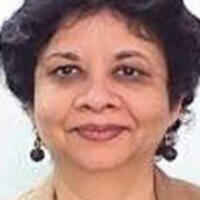Internal migration is being amplified by a fundamental shift towards urbanization, and in many ways is more important for developing countries than international migration. The scale of internal migration is huge, probably exceeding 700 million people, but robust estimates are as yet unavailable. Dedicated migration surveys could usefully complement household and labor surveys that include questions on migration, disaggregating data by age and gender, focusing on the links between internal and international migration, addressing circular migration, broadening the notion of remittances to include other types of support like food, and informing on the composition of remittances (both internal and international remittances).
The growing impact of migration on destination communities raises important issues about pressure for infrastructure and social services, urban congestion, productivity gains, barriers to mobility that may exist within national borders and difficulties migrants face in accessing public services. Currently, more than 80 percent of Sub-Saharan governments are negatively disposed towards internal migration, and there is a need more broadly to move away from such perceptions towards accepting migration and urbanization. Policymakers and stakeholders need to focus on how best to manage the process, ensuring adequate capacity at various levels of government and engaging employers’ and workers’ organization as well as civil society organizations.
The impact of internal migration on sending communities also needs more research, as it has significant implications for reducing poverty and hunger, as well as the prospects for achieving the other Sustainable Development Goals (SDGs) in sending communities. Specific policies are needed to facilitate the integration of return migrants from other locations within the country or abroad.
Finally, there are important links between internal and international migration.Finally, there are important links between internal and international migration. The movement from rural to urban, rural to rural, rural to urban areas is often a first step towards international migration, because urban dwellers tend to have greater access to information on international migration opportunities, the move often represents a weakening of familial ties that would otherwise tend to inhibit migration, and the higher wages in urban areas can increase the workers’ ability to migrate to other countries. In addition, it is worth distinguishing impacts on women and youth, as well as by skill level. Changes in international work opportunities also affect work and migration patterns locally.
Areas of focus
This Thematic Working Group will undertake the following activities:
- Improving knowledge on the linkage between informality and urbanization in the global South and how vulnerable people negotiate their rights with their local governments to address their vulnerability issues. KNOMAD will conduct studies to better understand integration of the informal economy and existing instruments and resources used in the process.
- Improving knowledge on the linkage between internal and international migration with a focus on internal migration in the global South.
- Synthetizing existing knowledge and generate new knowledge if needed on urban mobility between cities
- Help local governments in exchanging knowledge and expertise for managing internal and international migration

Chair

Co-chair

Focal Point
April 20, 2021, Washington DC
September 29, 2016, Washington DC
May 25, 2016, Washington DC
April 30, 2013, Washington DC
Milda Žilinskaitė and Aida Hajro
January 2024
Jonathan Crush and Godfrey Tawodzera
January 2024
December 2023
December 2023
December 2023
Jonathan Crush, Godfrey Tawodzera, Maria Salamone, and Zack Ahmed
December 2023
Kam Wing Chan
November 2021
François Crépeau and Fay Faraday
May 2021
François Crépeau and Maja Vezmar
June 2021
S.Irudaya Rajan and R.B. Bhagat
February 2021
Eva Dick and Benjamin Schraven
February 2021
Rosemary Vargas-Lundius In collaboration with Abrar Chowdhury, Soonhwa Yi, Ganesh Seshan and Nadege Desiree Yameogo
January 2018
Ana María Ibáñez, Andrés Moya, Julián Arteaga
May 2017
Martin Bell, Elin Charles-Edwards
November 2014

